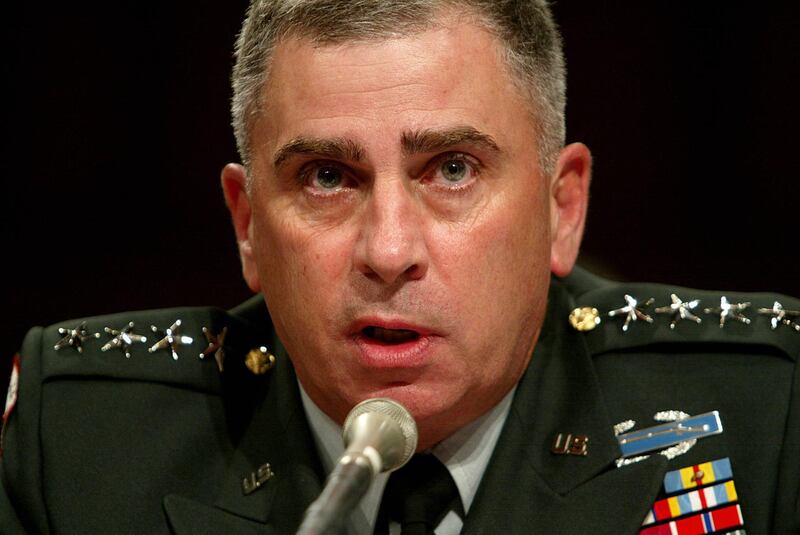US President Donald Trump on Tuesday tapped a top US general from the Iraq War as ambassador to Saudi Arabia, amid growing friction between the long-standing allies.
But who is John Abizaid?
A fluent Arabic speaker, Abizaid, 67, has studied the Middle East for years. Of Lebanese Christian descent, he rose to the top position at US Central Command during the Iraq War, leading it from 2003 to 2007.
US President Donald Trump has taken a liking to former generals in senior positions. Jim Mattis serves as his Pentagon chief and John Kelly remains his chief of staff.
The four-star general’s latest position takes him to another major centre of western activity in the Middle East: Riyadh.
When a student at Harvard University, he penned his thesis on Saudi Arabia. He focused on Saudi defence spending decisions and his paper won high praise from fellow academics.
He is now a consultant and a fellow at Stanford University’s Hoover Institution.
In Iraq, he had the foresight to see that the Americans were facing a “classical guerrilla-type campaign” from the aftermath of Saddam Hussein’s Baath Party, while his counterparts pushed the line that they had secured a “quick victory”.
Washington and Riyadh have had tense relations since the killing of Saudi journalist Jamal Khashoggi. Mr Trump has threatened consequences for Saudi Arabia after Riyadh's public prosecutor admitted Khashoggi had been killed in a premeditated rogue operation at the Saudi consulate in Istanbul last month.
_____________
Read more:
Yemen peace hopes rise as wounded Houthis cleared to leave country
John Bolton vows to 'squeeze' Iran after UAE visit
_____________
But he appears to reluctant to end arms sales to the Gulf kingdom amid a lack of hard evidence that directly incriminates the Saudi leadership. King Salman and Crown Prince Mohammed bin Salman deny any prior knowledge of the incident.
While navigating that crisis, Mr Abizaid's role will probably include pushing American lines on regional issues such as Yemen, where Washington has called for a ceasefire, and Iran, where US President Donald Trump has advocated a tough line, imposing sanctions on the country that serves as Saudi's prominent regional rival.
But, soon after retiring in 2007, Abizaid said that while the United States should try to prevent Tehran from obtaining a nuclear weapon, "there are ways to live with a nuclear Iran", describing the clerical state's behaviour as rational and noting the United States had once dealt with a nuclear-armed Soviet Union.
Mr Trump has not had anyone in the position since he was inaugurated in January last year, even though he made Riyadh his first foreign visit.






